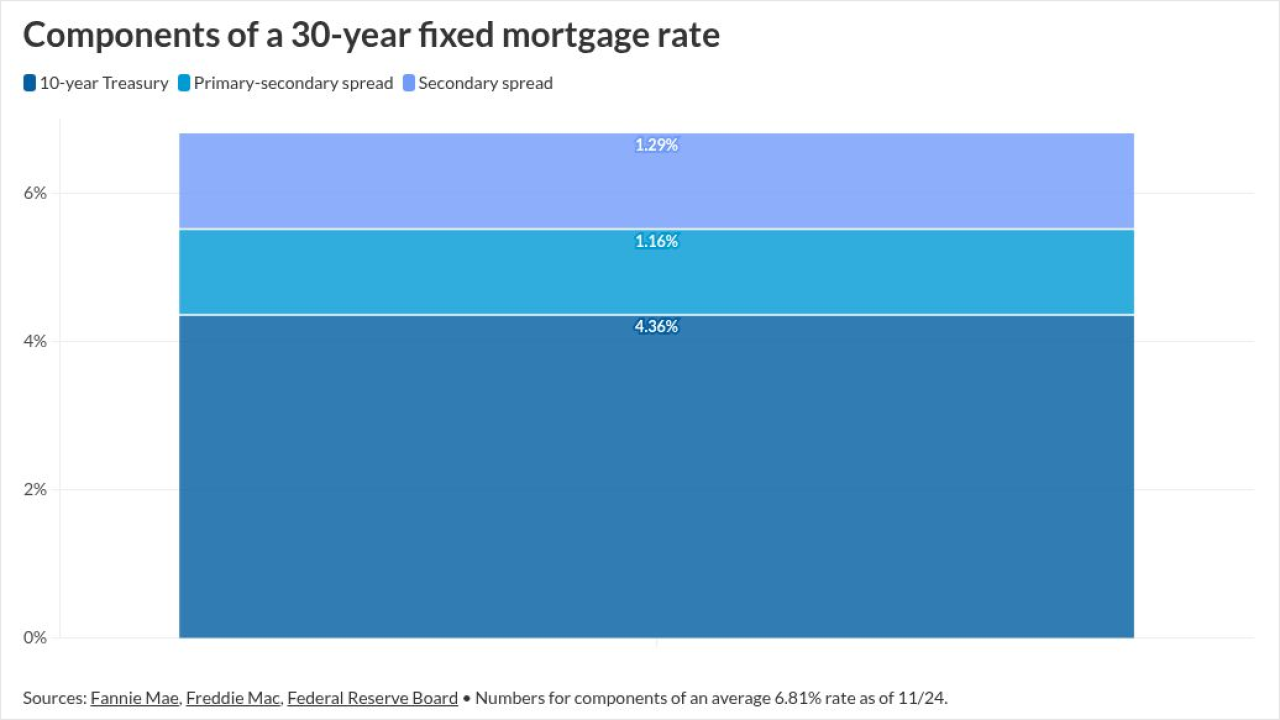
The Consumer Financial Protection Bureau's announcement Monday that it is accepting complaints about marketplace lenders is a sure sign it is moving toward regulating the burgeoning industry.
The agency has used its complaint database in the past to lay the groundwork for new regulations, including in credit cards, student loans and payday lending.
"Every time the CFPB gets into a new space… consumer complaints seem to be one of the primary tools," said Kevin Petrasic, a partner at the law firm of White & Case LLP. "We saw that with credit cards. We saw it with other products and services. The CFPB has effectively laid down a marker."
Typically, the CFPB uses consumer complaints to get a sense of where problems lie, for individual companies and for the industry as a whole. The agency can then use either enforcement actions or new regulations to attempt to address them.
"It will be interesting to see what the consumer complaints for marketplace lending look like," said Brian Knight, associate director for financial policy at the Center for Financial Markets at the Milken Institute. "Where are the pain points for consumers in this space? How legitimate are those complaints?"
For example, if the CFPB receives widespread complaints about hidden costs or undisclosed fees, it could choose to write a rule. If the complaints are focused on a single company or a handful of firms, it could use enforcement actions instead to send a message to the industry.
"A lot is going to depend on what the pain points look like," Knight said.
The CFPB's missive comes as marketplace lenders also grapple with an uptick in delinquent loans and a
The agency said little about its plans, beyond releasing a consumer bulletin designed to educate the public on marketplace lending.
In its bulletin, the CFPB defined marketplace, or peer-to-peer, lenders as firms that use an online platform to connect consumers or businesses seeking to borrow money with investors willing to buy or invest in the loan.
It emphasized to consumers that marketplace lenders are required to follow all federal and state consumer protection laws. It also specifically warned them that while some marketplace lenders advertise lower interest rates, consumers could "lose important protections" by refinancing a debt.
"Specifically, consumers should know that they may sign away certain federal benefits, such as income-driven repayment for federal student loans or servicemember benefits related to debt incurred prior to entering active duty," the CFPB said in its press release.
The bulletin urged consumers to evaluate how much they could afford and what they really needed to borrow, check their credit reports and shop around to multiple lenders or brokers.
Some said the CFPB's bulletin suggested the agency may be skeptical of the benefits of marketplace lending.
"The content of it is skewing to the things that could go wrong," said Jo Ann Barefoot, a former top official at the Office of the Comptroller of the Currency and now a consultant to consumer finance companies. "It says it's a young industry that hasn't been highly regulated."
She lamented that the bulletin "doesn't capture the fact that marketplace lending can be a good option for people," Barefoot said.
Still, many of the bigger marketplace lenders are likely prepared for the CFPB's moves, she said. The Treasury Department has already launched an inquiry into the appropriate regulatory structure for marketplace lenders, and CFPB's scrutiny has long been expected.
"The major players are very knowledgeable about compliance and they put a great deal into getting the compliance right," Barefoot said. "They're sophisticated about what they're doing."
One prominent marketplace lender, SoFi, praised the CFPB's actions, viewing it as good for the industry.
"Given the increasing popularity of our space, we welcome the CFPB's efforts to provide consumer education and help borrowers make sound decisions," said Debra Jack, vice president for public relations at the San Francisco-based firm. "We've been participating in the CFPB portal for quite some time and take all feedback very seriously."
"We believe that a great customer experience, fairness, and transparency are critical factors in our partnership with borrowers. We encourage the CFPB to hold all lenders accountable for their practices and ensure the borrower experience is consistently improving in meaningful ways."
The CFPB's moves may be welcome news for bankers, who sometimes
CFPB officials said they want to ensure that consumers and business borrowers know that marketplace lenders must comply with all relevant federal and state consumer protection laws.
"When consumers shop for a loan online we want them to be informed and to understand what they are signing up for," CFPB Director Richard Cordray said in a press release. "All lenders, from online startups to large banks, must follow consumer financial protection laws. By accepting these consumer complaints, we are giving people a greater voice in these markets and a place to turn to when they encounter problems."




